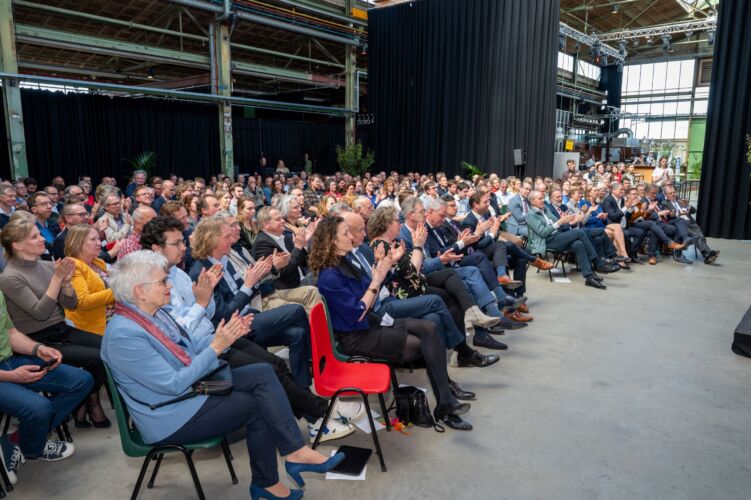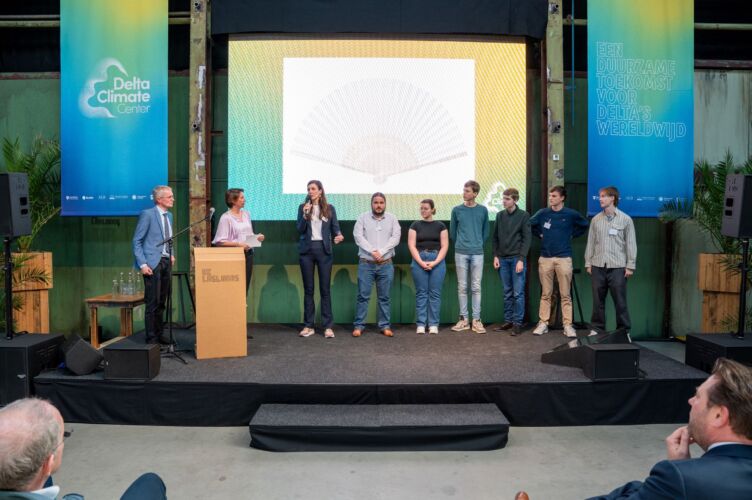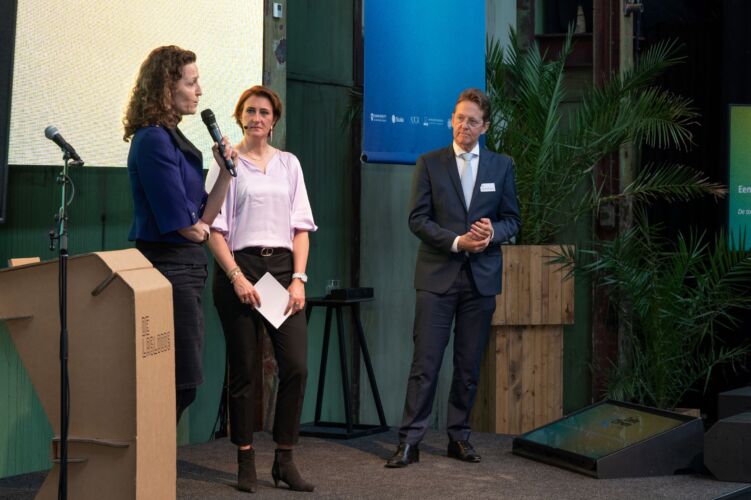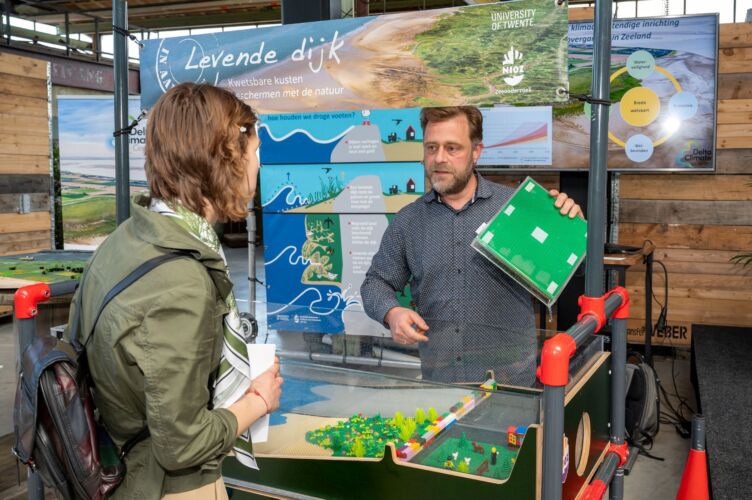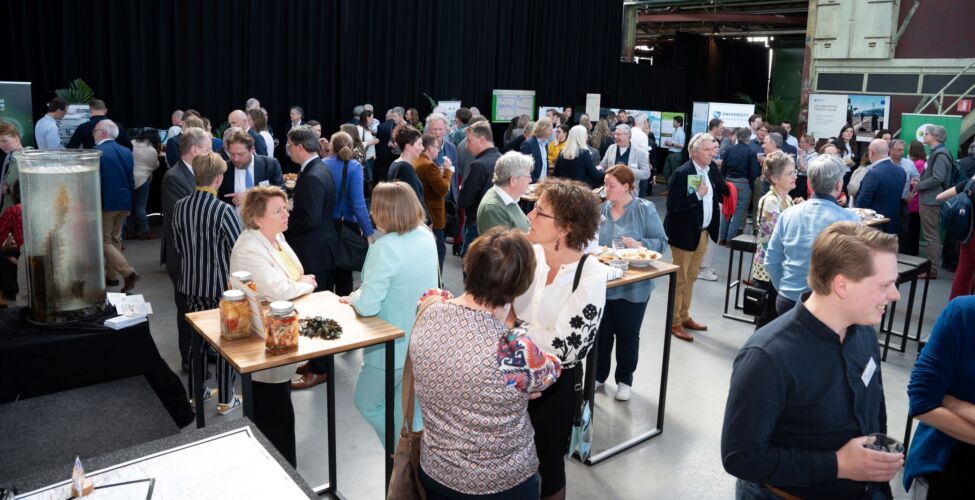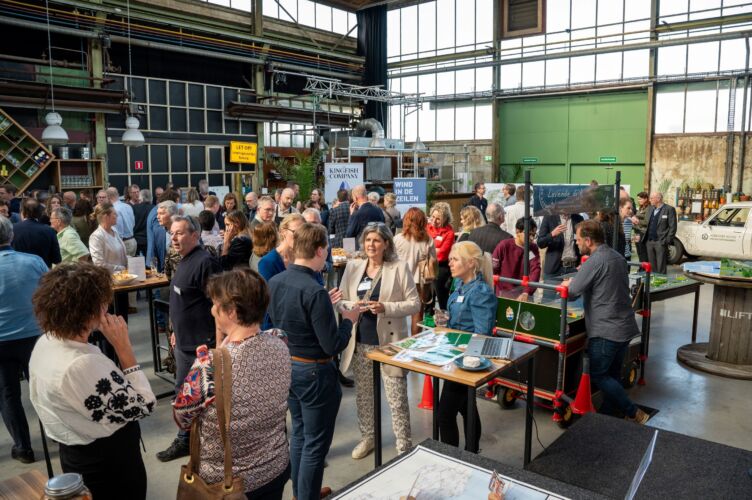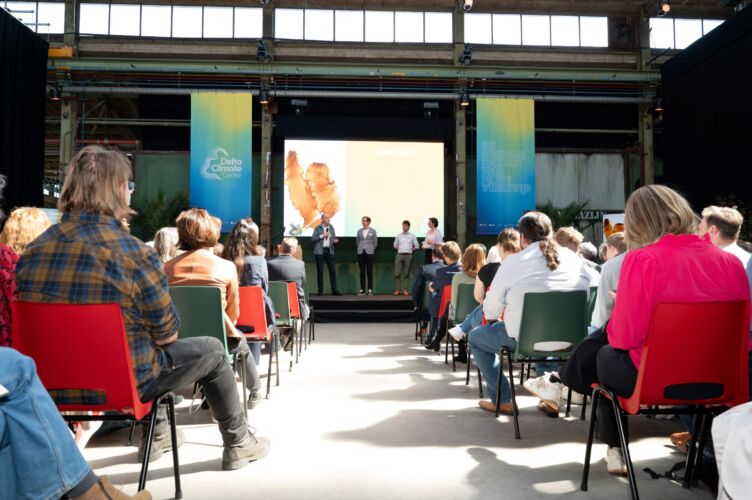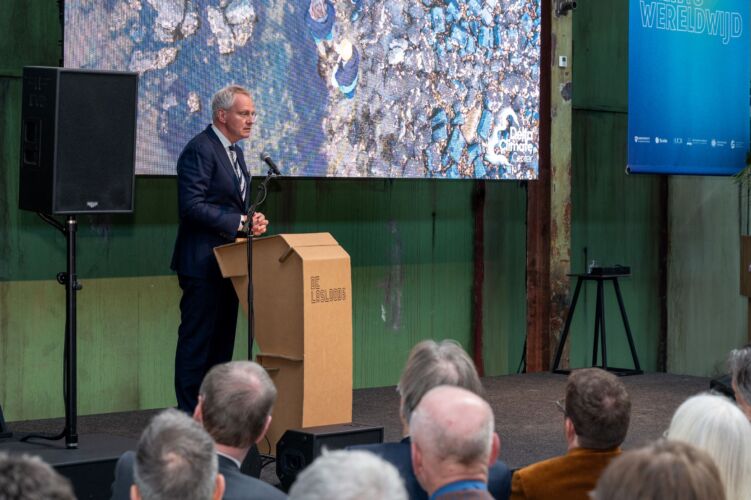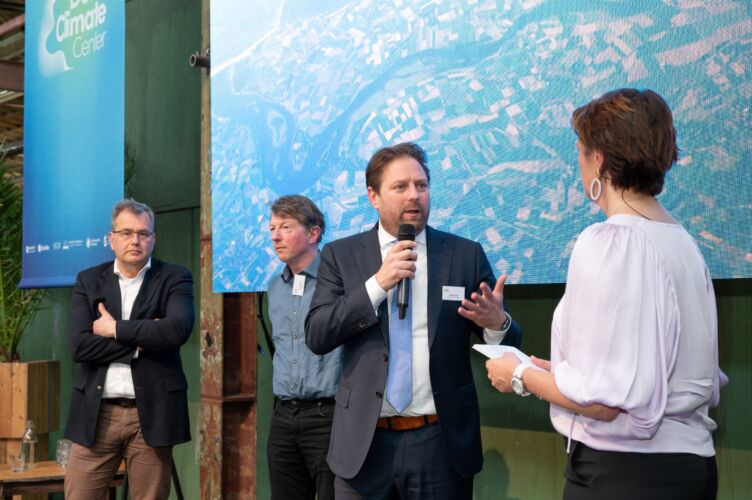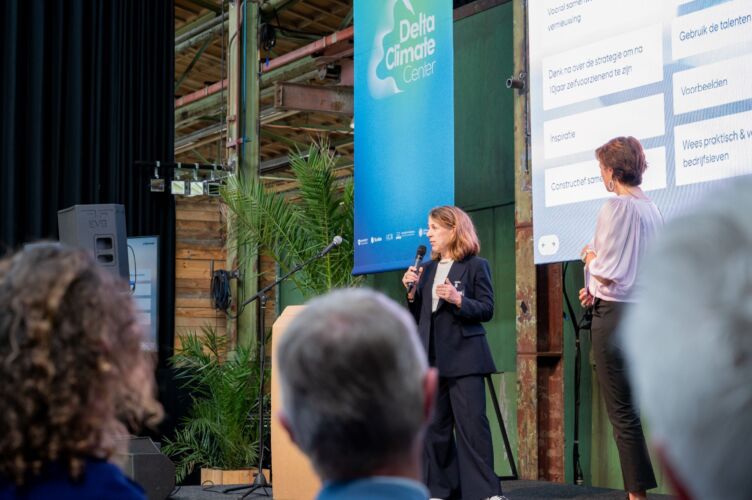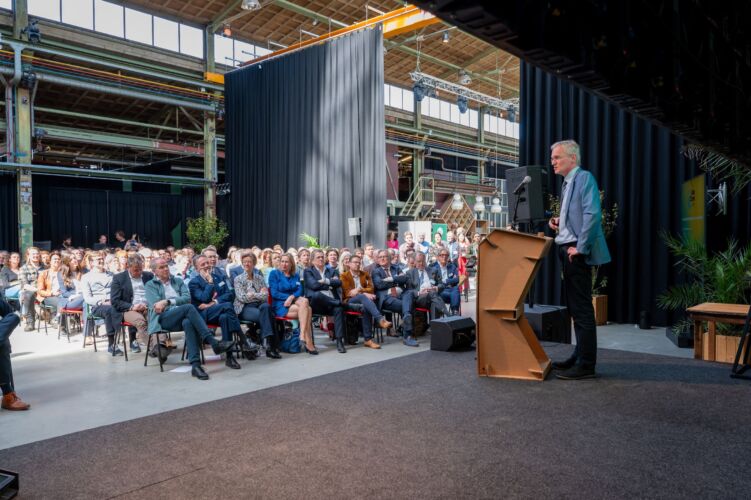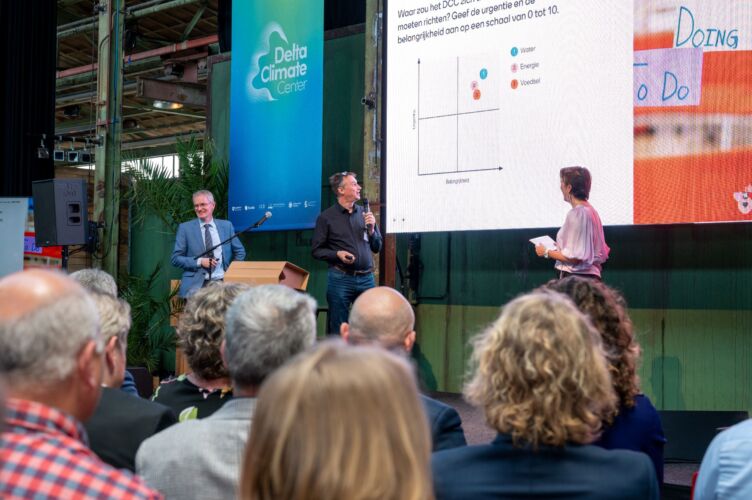Zeeland, and particularly Vlissingen, got acquainted with the Delta Climate Center on Wednesday, April 10th. Through the event "Get to know the Delta Climate Center" held at the Lasloods in Vlissingen, the new center made its first introduction to the outside world.
The Delta Climate Center aims to contribute to a sustainable future for the Zeeland delta and deltas worldwide through research and education. Scientific director Albert Klein Tank, along with several staff members, explained to over 250 visitors how the center plans to achieve this goal. Klein Tank highlighted four unique aspects of the center: the collaboration between vocational, higher, and academic education in both teaching and research, the focus on water, energy, and food themes and how they are addressed, the innovative approaches the center will employ to achieve its goals, and its view of the entire province as a living lab.
Three Iconic Projects
The event also featured the presentation of three iconic projects. These are multi-year research projects that mark the Delta Climate Center's ambitious start: Delta Protein, Flexible Deltas, and Procez. The first project concerns the protein transition, explained researcher Klaas Timmermans. Partners are investigating how the Zeeland delta can become an even more sustainable, delicious, and affordable source of seafood, within the natural boundaries of the delta.
Flexible Deltas focuses on how humans and nature can collaborate to combat climate change and rising sea levels. "We're exploring ways to adapt, work with nature, and ensure a climate-resilient layout of land-water transitions for future generations," explained project leader Teun Terpstra.
The third iconic project, Procez, focuses on circularity. Researchers are examining what is needed for a dynamic, circular, and green economy in Zeeland. This involves not only technical solutions but also considerations regarding governance and administration, clarified Professor Herman Kasper Gilissen.
Transdisciplinary Solutions
All founders of the Delta Climate Center participate in these iconic projects. The center has six founders: Scalda, HZ University of Applied Sciences, University College Roosevelt, NIOZ, Wageningen University & Research, and Utrecht University. Barbara Oomen, Chairwoman of the Board of HZ, sees it as a significant step for education and research in Zeeland. "And for deltas worldwide," she emphasized. "Here, vocational, higher, and academic education come together. Together with practical experience, they work on how water, energy, and food can contribute to the transition to a sustainable delta. After all, the major questions of our time require transdisciplinary solutions, anchored regionally. For example, in our beautiful living lab Zeeland."
Direction
The establishment of the Delta Climate Center was made possible by financial contributions from the Wind in the Sails compensation package and the province of Zeeland. Both Secretary-General Loes Mulder of the Ministry of Education, Culture, and Science, and Commissioner of the King Han Polman expressed their satisfaction with its establishment. During the gathering, both briefly reflected on its creation. Polman thanked, among others, deputies Harry van der Maas and Dick van der Velde. Deputy Harry van der Maas echoed these sentiments. "After years of effort, I am very pleased that the Delta Climate Center is here," he said. "Increased research and education strengthen our region. It is of great significance, especially for businesses and youth in Zeeland. I wish the Delta Climate Center every success in achieving its admirable goals."
Polman also expressed gratitude to Bernard Wientjes, who compiled the Wind in the Sails compensation package, and senior civil servant Siebe Riedstra, who ensured its implementation. Both were present at the Lasloods. "We are on course with the implementation," Polman concluded his speech. "Now we also have a compass. I wish the center a very smooth journey."

